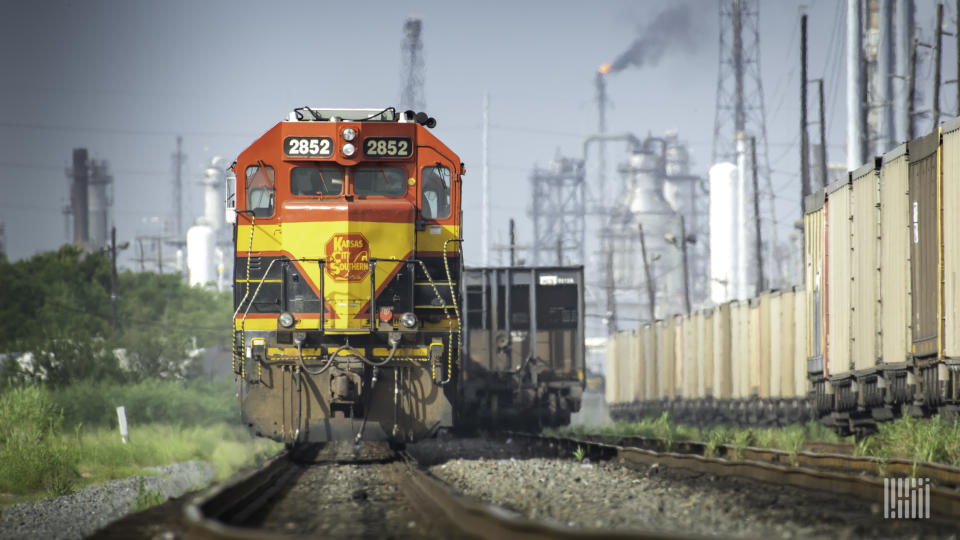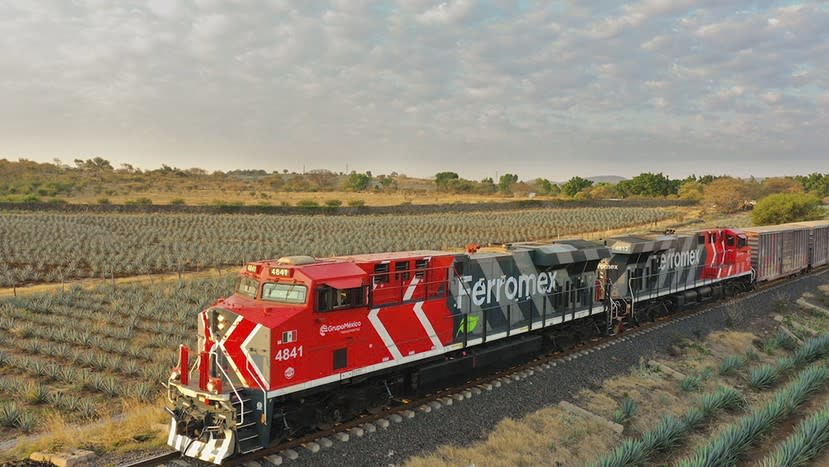Mexico orders railroads to prioritize passenger train services over freight operations

Mexico’s government issued a federal mandate this week forcing private railway companies operating in the country to offer passenger service over their normal daily freight runs.
Published in the Mexican government’s official gazette, Monday’s decree gives the country’s two main private concessionary rail operators — Canadian Pacific Kansas City (CPKC) and Ferromex — until Jan. 15 to present proposals for offering the passenger service themselves. If the two rail operators decline, the government will put Mexico’s army or navy in charge of lines designated for passenger services.
Mexico’s freight railway system is owned by the federal government and operated by CPKC and Ferromex under concessions from authorities.
“We made this decision because train travel will be more economical, comfortable and less polluting, since the tracks can be electrified,” Mexican President Andres Manuel Lopez Obrador said during a news conference Monday. “It is safer public transportation and the mobility of the population from the main cities of Mexico to the northern border will increase.”
The decree orders the use of more than 10,000 private rail lines in Mexico that primarily carry freight to establish four short intercity passenger routes, along with three long passenger routes from central Mexico to Mexican cities along the U.S.-Mexico border.
The longer routes include passenger service from Mexico City to the border cities of Nuevo Laredo and Nogales, along with passenger service from Aguascalientes to the border city of Ciudad Juarez.
Officials for Calgary, Canada-based CPKC (NYSE: CP) in a news release said it is “reviewing the draft decree … regarding potential passenger rail service on certain existing freight rail corridors.”
In May, CPKC reached an agreement with the Mexican government to carry out a study around passenger trains from Mexico City to destinations across the country.
“As required by our concession, CPKC de Mexico will work closely with the Mexican federal government to evaluate passenger service on that corridor,” CPKC said in a statement. “The draft decree emphasizes that the public freight rail service will be respected and as such, we do not expect an adverse impact on our concession. CPKC has extensive experience hosting passenger rail services in multiple locations across its network in the U.S and Canada while efficiently managing freight service.”
Mexico City-based Ferromex has not issued a public statement regarding the federal decree.

Business analysts said it remains unclear what impact the federal decree could have on freight operations across Mexico.
“The bottom line is we trust that [CPKC] management is better positioned to handle these dynamics than anyone, but it’s difficult to assess the impact to valuation from these headlines and potential outcomes given how important Mexico is to the overall growth story,” Deutsche Bank (NYSE: DB) equity research analyst Amit Mehrotra told clients on Tuesday.
In 2021, roughly 1.1 million carloads of freight were hauled by railways in Mexico, a 7% increase over 2020, according to a recent report from Statista.
According to the International Trade Administration (ITA), Mexico has made improvements to its rail infrastructure in recent years. The ITA is an agency in the Department of Commerce that promotes U.S. exports of nonagricultural goods and services.
The current top three product sectors using rail service in Mexico by volume are industrial (47%), agricultural (26%) and mineral (10%).
“The rail cargo improvements coincide with the expansion of Mexico’s foreign trade,” ITA said. “One big driver of trade growth is the automotive industry (currently trains move seven out of 10 cars produced in the country, while a decade ago it was only three out of 10). Expansion of the oil and gas sector is a major emerging driver. Rail is already the main means of transporting fuels, cereals, minerals and metals.”
Click for more FreightWaves articles by Noi Mahoney.
More articles by Noi Mahoney
ITS Logistics making big moves in Lone Star State
Houston may restrict cargo truck movements inside city limits
10 Roads Express lays off 66 workers in Texas
The post Mexico orders railroads to prioritize passenger train services over freight operations appeared first on FreightWaves.
